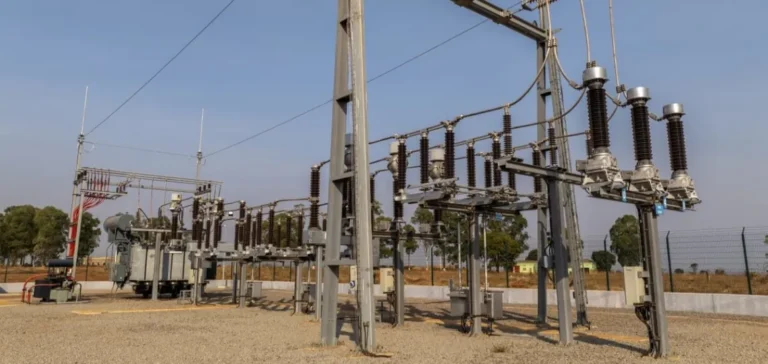The Ministry of Energy and Water of Angola has officially inaugurated the Catabola electrification project, marking a key milestone in the national electricity access programme. Carried out by the Mitrelli Group, this initiative represents the first connection to the national power grid for approximately 20,000 households in a region strategic for the country’s agriculture and industry.
A high-value logistical project
The project includes the construction of 132 kilometres of medium and low voltage power lines, along with the installation of 26 transformer stations. A 60/30 kilovolt (kV) substation with a capacity of 20 megavolt-amperes (MVA) completes the infrastructure. The operation aims to support the modernisation of public services in the municipality of Catabola, particularly schools, health centres and markets.
The project is part of a broader national strategy aiming to electrify 300 municipalities across the country. According to provided figures, all Mitrelli projects in the province will eventually connect over 126,000 people, significantly reducing dependence on diesel generators.
Impact on the local and regional economy
Access to stable electricity is presented as a driver of development for essential services and local economic activity. Electrification helps improve the operating conditions of public facilities, stimulates small businesses and encourages the establishment of local industries.
Project officials highlighted the coordination between government authorities, technical operators and local communities. The model is based on an integrated approach, combining infrastructure with economic development support.
Outlook for international investments
This type of project meets the criteria sought by institutional investors by demonstrating measurable social return on investment. It shows the capacity of technical partners to deliver large-scale solutions in rural areas while strengthening the resilience of energy infrastructure.
With rural electrification in sub-Saharan Africa at around 34%, operations such as Catabola offer a replicable framework. By replacing diesel-powered generators, the project contributes to reducing carbon emissions while aligning with the country’s energy development objectives.






















